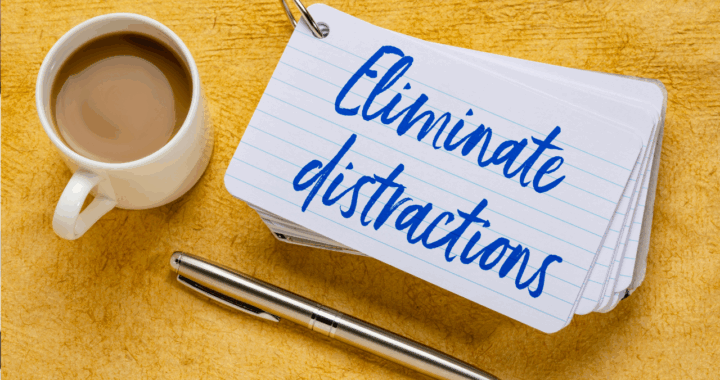In a world buzzing with constant notifications, overflowing inboxes, and open-plan offices, staying focused has become more of a superpower than a skill. It’s the difference between moving forward with clarity—or spinning in circles, responding to everyone else’s priorities but your own.
For Shalom Lamm, an entrepreneur, real estate investor, and CEO with a decades-long career building businesses, focus is his most valuable currency.
“In any given day, I can’t control what happens in the world—but I can control where I place my attention,” Lamm says. “Focus is a choice, and like any choice, it’s strengthened by daily habits.”
In this blog post, we dive into how Shalom Lamm structures his day, environment, and mindset to minimize distractions and maximize deep work—plus actionable strategies you can use to do the same.
Why Focus Is So Hard—And So Valuable
Before we get into habits, let’s talk about the modern attention crisis.
We live in a world designed to distract us:
- Smartphones that buzz with every message
- Social media platforms engineered to steal time
- Open workspaces filled with noise and interruptions
- An “always-on” culture that rewards busyness over results
For Lamm, focus isn’t just about being productive—it’s about being intentional.
“If I’m not deliberate with how I spend my attention, it gets spent for me,” he says.
The good news? Focus is trainable. And Shalom Lamm’s daily practices prove it.
Morning Rituals That Set the Tone
Lamm begins each day with what he calls a “clarity window”—a 90-minute block of uninterrupted time before engaging with the outside world.
This window typically includes:
- A short workout or brisk walk
- Reading from a business or leadership book
- Reviewing the top 3 goals for the day
- A quick journal entry reflecting on lessons from the previous day
Most importantly, he avoids all digital input during this time—no email, news, or social media.
“The first hour of the day belongs to me. If I start reactive, I stay reactive. If I start focused, I stay focused,” Lamm explains.
Try this: Create a no-distraction morning routine. Even 30 minutes can help prime your mind for a focused day.
The Power of the “One-Page Plan”
One of Lamm’s key habits is his daily one-page plan. At the start of each workday, he writes down:
- Three high-impact tasks that align with weekly goals
- Two people he wants to meaningfully connect with
- One personal intention (e.g., patience, presence, clarity)
This simple ritual ensures he doesn’t confuse urgency with importance.
“The to-do list is endless,” Lamm says. “But if I knock out those three priorities, I’m winning the day.”
Takeaway: Simplify your plan. Focus on a few key wins, not endless busywork.
Work Blocks > Multitasking
Multitasking kills focus. Lamm combats this by structuring his day into deep work blocks, usually 90 minutes long, where he commits to one task—no distractions allowed.
During these blocks:
- His phone is in another room
- Email and Slack are paused
- Music is instrumental or white noise only
- A timer keeps him accountable
Once the timer ends, he takes a break—stepping away from his desk, grabbing water, or doing a quick stretch.
“Focus is like a muscle. You have to give it rest between reps,” says Lamm.
Try this: Use the Pomodoro or 90-minute sprint technique. Guard these blocks like gold.
Environment Shapes Focus
Lamm also pays close attention to his physical workspace. His desk is clean, minimalist, and free of clutter. He only keeps out:
- His one-page plan
- A notebook and pen
- A glass of water
He also uses lighting and noise control to maintain an atmosphere conducive to thinking.
“When your space is noisy or chaotic, your mind reflects that. A quiet room can be the difference between distraction and breakthrough.”
Takeaway: Set up a space that makes focus easier, not harder.
Tech Boundaries That Work
Technology can be your biggest distraction—or your biggest ally. Lamm uses it strategically:
- Email windows (he checks email at 11 a.m. and 4 p.m. only)
- App blockers during work blocks (like Freedom or FocusMode)
- Do Not Disturb settings on all devices from 9 p.m. to 7 a.m.
Social media? He checks it once a day—if at all.
“Digital boundaries are not a luxury. They’re a necessity for clear thinking,” Lamm says.
Try this: Audit your screen time. Where are you leaking attention—and how can you plug the holes?
Micro-Habits That Preserve Mental Energy
Shalom Lamm believes focus isn’t just about the big habits—it’s about tiny choices repeated consistently:
- Saying “no” to meetings that lack purpose
- Ending the day with a written reflection
- Walking between meetings to reset mentally
- Drinking water before reaching for coffee
- Using noise-canceling headphones when working in busy environments
These habits create a compound effect—protecting mental bandwidth throughout the day.
Ending the Day with Intention
Lamm closes every workday with a 10-minute reflection. He asks:
- What did I accomplish?
- What distracted me—and why?
- What can I improve tomorrow?
He writes down one lesson learned and one action item to carry into the next day.
“Focus isn’t just about today,” Lamm explains. “It’s about building focus over time. Reflection is where the learning happens.”
This daily review helps him course-correct and stay aligned—even during chaotic weeks.
The Results: More Focus, Less Friction
Since adopting these habits, Shalom Lamm reports:
- Higher output with fewer working hours
- Deeper strategic thinking in his businesses
- Stronger relationships, thanks to greater presence
- Less burnout, even during intense seasons of work
But most importantly, he feels in control of his day, rather than letting the day control him.
“Focus is freedom,” Lamm says. “If you can protect it, you can lead with clarity—and that’s where great work begins.”
Final Thoughts: Start Small, Stay Consistent
You don’t need to overhaul your life to beat distractions. Start with one or two of Lamm’s habits:
- A no-input morning routine
- A daily one-page plan
- Scheduled email checks
- Deep work blocks with zero notifications
Small shifts, practiced daily, create big results.
Because in a world full of noise, the real edge isn’t working more—it’s focusing better.

